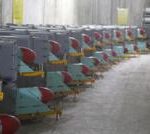In a bid to strengthen food security in the nation’s capital, the Federal Capital Territory Administration (FCTA) has initiated the development of a comprehensive agricultural policy—its first since the creation of the FCT.
Speaking at a stakeholders’ engagement forum held in Gwagwalada on Wednesday, the Acting Director of Planning, Research and Statistics at the FCT Agriculture and Rural Development Secretariat, Umar Malamiyo, said the policy will serve as a strategic guide to enhance agricultural productivity across the six Area Councils.
“Since the inception of the FCTA, there has never been a specific policy focused on achieving our goals in agriculture. This exercise will bring about a clear policy direction aligned with our major objective—food security,” Malamiyo stated. “It will help identify areas that will enable our farmers to grow all types of crops in large quantities.”
The policy document, expected to be finalized within six months, is being developed in collaboration with stakeholders including farmers, policymakers, and agricultural experts.
Lead speaker at the engagement, Professor Oyinkan Tasie, emphasized the importance of a holistic approach to overcoming food security challenges in the FCT.
“We are working with the FCT Administration to develop an agriculture policy—the first of its kind since the creation of the FCT. Through this, the FCT will be able to clearly articulate its vision for agriculture. It will address hunger and ensure long-term food security,” said Tasie.
Key focus areas of the proposed policy include strengthening strategic food reserves, enhancing storage capacity to stabilize supply, improving access to agricultural financing, and promoting climate-resilient farming practices.
“With coordinated efforts and a comprehensive policy in place, we believe stakeholders can develop effective and sustainable solutions to address food security challenges in the FCT and beyond,” Tasie added.
The initiative marks a significant step toward building a robust agricultural framework to meet the growing food demands in the capital territory.













